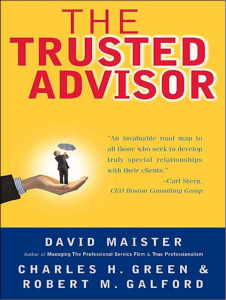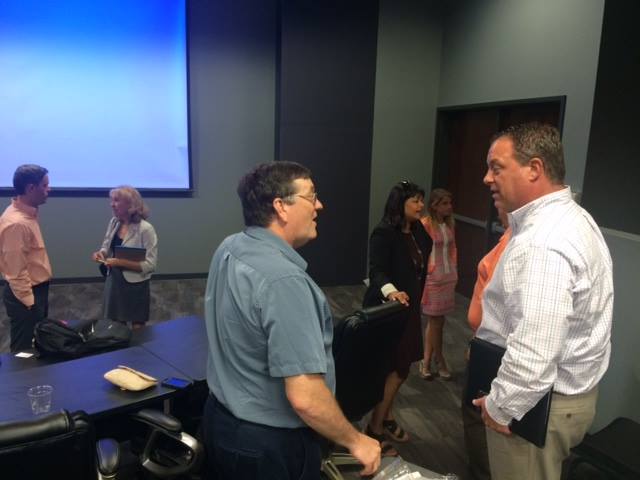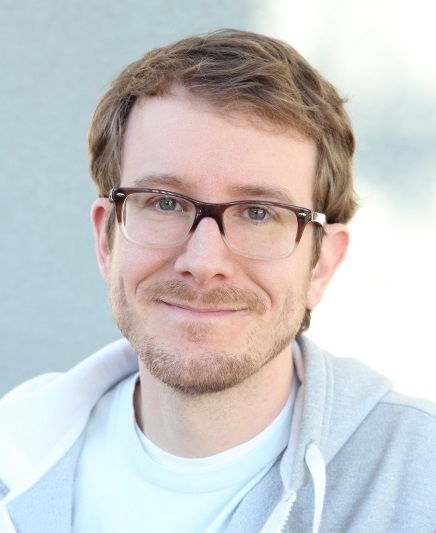This blog series, which we call A New Kind of Training, is built on some very fundamental ideas that should seem pretty familiar by now to any readers who have been with us for a while. Those concepts include:
– The notion of relational expertise and relational skills
– The invitation to train, grow and practice cultivating relational skills at work just as we would any other professional skill, like coding in PHP or effective use of Excel macros for event management, etc.
– The tremendous value that those relational skills have for your career
Another theme that will be foundational to everything we do here is self-awareness, and it’s time we put professional self-awareness in the spotlight.
Introducing a little segment called “What’s Your Weakness Interviews!” We want to showcase real people who are actively pursuing new relational skills. We’ll also share stories from individuals who have previously pursued particular relational skills, succeeded in acquiring those skills, and can now reflect on their experience for us. To encourage maximum vulnerability about our weakness, we’ll anonymize the people interviewed. So let’s dive right in to our first interview with Smith.
BLAKE: So Smith, what do you think your coworkers would currently say is your greatest weakness in the workplace, and how have you gained self-awareness about this?
SMITH: I think they would say that I have a hard time showing my personality and building deeper relationships with people. And the reason I think they would say that is because they have said that! I struggle to build relationships with people who don’t meet something like a minimum level of trust. I’m a private person by nature. I’m not one to share a lot of personal information with people. Yet, to build trust and to build a relationship, both people have to share. But I have to battle internally against something like resistance to open up and share myself. Within the last three years, I’ve come to see this as something I have got to really work on and get better at.
 About three years ago, the client service team went through a book called The Trusted Advisor. It talked about how there are multiple levels to becoming a trusted advisor to a client, and for the first few levels, I was like ‘oh I got this, these are easy.’ Those were levels based on being viewed as credible and reliable—basically being an expert in your field. Then it started to talk about having both a rational and emotional relationship with people.
About three years ago, the client service team went through a book called The Trusted Advisor. It talked about how there are multiple levels to becoming a trusted advisor to a client, and for the first few levels, I was like ‘oh I got this, these are easy.’ Those were levels based on being viewed as credible and reliable—basically being an expert in your field. Then it started to talk about having both a rational and emotional relationship with people.
Clients have to have a level of trust in you as a person, not just in your competency as a professional but in your relationship, before you can reach the level of being a truly trusted advisor. I knew that was an area where I would struggle. I have good relationships with clients, and I can look back on many of them and see that they view me as an expert, but they weren’t just going to pick up the phone to call me and bounce ideas around because we didn’t have that sort of relationship. So that book really helped bring to my mind that I needed to get better at this.
BLAKE: Do you think you could share an example of how you have experienced this?
SMITH: Sure, I could share a general example. I go to dinner with clients fairly regularly, and that’s a great opportunity to ask meaningful questions to understand their life outside of work—kind of on the personal side. As they share and open up, I’m choosing to not just follow up with additional questions but to say ‘hey, that’s interesting that you say that. Here’s something I’ve really enjoyed, or we have done as a family, or a struggle, etc.’
And there have been some successes, I think. One of the things the book mentioned is that if ever a client wants to call you, they shouldn’t feel something like ‘oh, is this person going to try to sell me something or are they going to try to bill me for their time, etc.’
They shouldn’t look at any contact like that as transactional. I want them to view it as more relational, as if ‘I’m talking to this person and this person is a friend, and he just happens to work for an agency that works with us.’ They have to trust you to do that, and that has definitely progressed with a number of clients.
BLAKE: Are there previous weakness from your professional life that you would say are no longer weaknesses? And if so, what was that journey like?
SMITH: Yeah! I think one that comes to mind is something related to introversion. I had never been particularly good at casual conversation.
BLAKE: You mean just regular ole chitchat?
 SMITH: Yeah! Chitchat is often very appropriate and good. One of the places it’s really helpful is networking events. You go into a room where you don’t really know anybody and you just strike up a conversation with someone and hope to progress that conversation to ‘oh, I know this person now.’ That was something that I was not particularly skilled at coming out of school, but after a couple years in the professional world I just decided I had to do it. I have got to crack this thing. I have got to figure out how to have just a casual introduction conversation better.
SMITH: Yeah! Chitchat is often very appropriate and good. One of the places it’s really helpful is networking events. You go into a room where you don’t really know anybody and you just strike up a conversation with someone and hope to progress that conversation to ‘oh, I know this person now.’ That was something that I was not particularly skilled at coming out of school, but after a couple years in the professional world I just decided I had to do it. I have got to crack this thing. I have got to figure out how to have just a casual introduction conversation better.
So how did I do it? I just went and deliberately put myself into those situations and failed miserably the first few times. I studied how other people do it. I got myself into conversations with people who are good at doing it and learned by observing. You pick up on some of the ‘rules,’ so to speak. For example, you’re not being rejected if someone ends a conversation with you when they see someone else they know, or it’s okay if you know one person in a three-person conversation to go over and interject yourself into that conversation; you’re not interrupting because it’s that type of event.
You learn there are social rules to this whole deal, basically. So I went to a bunch of those, I got on committees, I got involved in different areas, and I found that the whole chitchat part of the conversation just took care of itself in time, with practice. Within a couple years, I really had gotten to a point where I could go into an event and not feel self-conscious. I can go out and have a profitable time where I met several new people each time. Casual conversation, meeting new people, and networking just became second-nature, and that’s been very helpful from a business perspective.
So there are some highlights from my interview with Smith. It would be good to note these two things:
– Here is a successful professional who is currently aware of a relational skill that needs cultivation, and he is deliberately strategizing and acting to improve that relational skill, just as one might take an online course to improve a technical professional skill, like photo editing in Photoshop.
– He has also experienced significant improvements in his chitchat skillset because of his investment in cultivating that skillset, and those skills continue to pay dividends to his career and his company.
Farewell for now, comrade. Train like your career depended on it!








